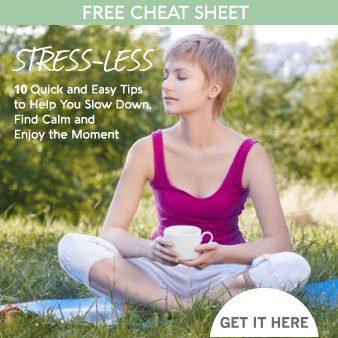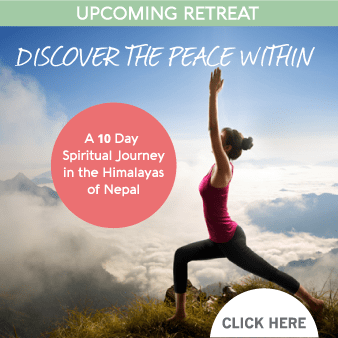
We all know dealing with a new baby is not all sunshine and roses, and it’s completely normal to have days feeling exhausted, overwhelmed, unhappy or worried. And while most women are aware of the potential risk of experiencing post-partum depression (up to 1 in 7 mums will experience this), post-partum anxiety is less well-known but even more common, affecting 1 in 5 new mothers. And unfortunately, many sufferers can experience both anxiety and depression together.
So how do we differentiate between the normal and expected stress and overwhelm of the post-partum period versus something more serious?
Post-partum anxiety (PPA) is more than feeling concerned; it arises when the feelings of being stressed become so large that they start to impact on the way that you are functioning from day to day. PPA can impact the way that you feel and care for your baby. Excessive worry and the stress of anxiety can start to have a serious impact on your life and stop you doing things that once were easy and enjoyable to do.
“Some worry is adaptive — anxiety is a natural response to protect one’s baby, and often that’s expressed with hyper-alertness and hyper-vigilance,” says Margaret Howard, Ph.D., director of postpartum depression at Day Hospital at Women & Infants’ in Providence, Rhode Island.
On the other hand, if you know your worries are irrational (say, you have an intense fear that your baby will get hurt if you don’t hold her) but you can’t get them out of your brain, that suggests you may be tipping the scale. The same is true if your anxiety isn’t tied to any particular threat, if it leads you to dread everyday situations (like driving with Baby), if panic attacks come out of the blue, or if it interferes with your ability to function (because you check on her throughout the night). “Anxiety is a problem when it overshoots reality,” Howard says.
Other signs and symptoms include:
-
Feeling an uncontrollable sense of anxiousness
-
Worrying excessively about things, especially their health or the health of their baby
-
Experiencing an inability to concentrate
-
Feeling irritable or agitated
-
Having tense muscles
-
Feeling restless, tense or constantly ‘on edge’
-
Racing heart/strong palpitations – sometimes panic attacks
-
Reoccurring worrying thoughts such as that you are not doing things right and/or that something terrible will happen
-
Unable to sleep – even when you have the opportunity
-
Avoiding situations for fear something bad will happen.
RISK FACTORS FOR POST-PARTUM ANXIETY
Unfortunately, any woman can be at risk of developing PPA, but it’s more likely if there is a prior personal and/or family history of anxiety; if there is past trauma – including birth trauma; or in A-type personalities who are prone to overthinking, worry and perfectionism.
There are also cultural and physical factors that can play a significant role.
In modern, industrialised cultures, there is actually very little support for new mothers and the burden of recovery from birth as well as isolation in caring for a new baby can be big stressors. Many other cultures have traditions of long periods of rest and recuperation after birth, with friends, family and neighbours rallying around the new family to help ease this huge life-transition. The mother is usually cared and pampered for, fed nourishing meals and supported with practical help such as cooking, cleaning and child-care.
In contrast, many new mothers today may have very little time to recover after birth and may not rest adequately, as well as have very little support with practical matters, or may have to juggle paid work and caring for a baby. These can can have significant knock-on effects long after the birth of the baby.
Thankfully there are ways to prepare for a more nourishing transition into motherhood. Post-partum doulas are a great option to help support this overwhelming time, and there are some useful books that can offer practical ideas on how to prepare more fully such as Golden Month, The First Forty Days and The Fourth Trimester.
THE HORMONE CONNECTION
As well as stress and other risk factors, the sequalae of biological and hormonal events that occur directly after birth can also be partly to blame.
Post-partum is associated with an abrupt decline in progesterone, which has natural sedative qualities and can make sleep (already a common issue with a baby) more difficult and exacerbate anxiety, as progesterone works on the calming GABA pathway in the brain. The ovaries will not start producing progesterone again until the first menstrual cycle.
(1)There are also lower levels of oestrogen after birth, a natural hormonal change to help promote lactation. Oestrogen facilitates serotonin synthesis in the brain, so when levels are low, women are naturally going to be more prone to lower moods.
Thyroid hormone levels and dopamine can also fluctuate a lot after birth, so it’s no wonder women can feel out of sorts!
TAKING A HOLISTIC APPROACH TO POSTPARTUM ANXIETY
The current orthodox medical model typically involves prescription medications and/or counselling/talk therapy. Many doctors are less inclined to prescribe these medications to a breast-feeding mother however, due to potential risks to the baby, and notwithstanding breastfeeding, they come with risks of side-effects and addiction regardless.
Thankfully there are good holistic options available, and by addressing both the physical and mental factors behind anxiety, symptoms can often be overcome through stress-reduction, nutrition, psychological support and also herbal medicine.
NATUROPATHY & NUTRITION
Seeing a naturopath can be a good option, as there are herbs that can both support the body during these hormonal changes, build resilience to stress as well as calm the nervous system and support sleep and relaxation such as withania, chaste tree, oats, skullcap and many others. A naturopath can also help to support the nervous system through clinical nutrition, as there are many possible nutrient deficiencies that can worsen mental health problems. (I offer free 30 min introductory naturopathic consultations and assessments, find out more
here).
Diet is also really important. Many busy mothers put their own wellbeing last, often eating quick, convenient (and not always the most healthy) foods while they focus on caring for the baby. Eating a nutrient dense diet that most importantly keeps blood-sugar levels stable is really helpful for managing anxiety and keeping stress-hormones on the down-low. I have a free downloadable anti-anxiety diet that is a great place to start, you can grab it
here.
YOGA
While there have been many studies on how yoga can reduce anxiety and depression, up until 2014, there was very little research on it’s effects on postpartum mothers.
Harvard Medical has looked at many studies and concluded the following on the benefits of yoga for anxiety and depression in the general public:
“Available reviews of a wide range of yoga practices suggest they can reduce the impact of exaggerated
stress responses and may be helpful for both anxiety and depression. In this respect, yoga functions like other self-soothing techniques, such as meditation, relaxation, exercise, or even socializing with friends. By reducing perceived stress and anxiety, yoga appears to modulate stress response systems. This, in turn, decreases physiological arousal — for example, reducing the heart rate, lowering blood pressure, and easing respiration. There is also evidence that yoga practices help increase heart rate variability, an indicator of the body’s ability to respond to stress more flexibly.”
A 2014 paper published in the journal
Depression and Anxiety, academics from Manchester and Newcastle Universities, specifically showed that women who attended a yoga class a week for eight weeks had decreased anxiety scores compared to the control group who received normal antenatal treatment.
Although many new mothers are pressed for time, there are some great options for practicing yoga even during this demanding life-stage. Online yoga classes are ubiquitous, and
Glo in particular offers post-natal and other classes from expert teachers ranging from just 10 minute sessions all the way through to 90 mins.
For those mums that would prefer to get out of the house, many gyms with creches now offer yoga, including the more relaxing styles of yin or restorative, and many yoga studios offer “mums and bubs” yoga if you want to bring your little one and connect with other mums.
MINDFULNESS MEDITATION
Mindfulness is another well-studied intervention proven to significantly reduce stress and anxiety, even in as little as 5-10 minutes a day. As a mindfulness instructor I have many short, free guided meditations on my
Youtube channel as well as a
comprehensive 8 week program that dives deep into making mindfulness a part of your daily life.
OTHER RESOURCES
For extra support, these organisations offer some great resources and services for both post-partum anxiety and depression:
Lifeline Australia – 13 11 14 – Crisis Support and Suicide Prevention. Lifeline is a national charity providing all Australians experiencing a personal crisis with access to 24-hour crisis support and suicide prevention services
PANDA – Perinatal Anxiety & Depression Australia. PANDA supports women and their families who are suffering from antenatal and postnatal anxiety or depression
Please know that you do not have to suffer from PPA alone or in silence – help is always available, and with an integrated, holistic approach you can start feeling better and enjoy this precious yet challenging chapter in your life.
Do you know someone suffering from PPA? Show you care and share this post with them!
In the comments below, I’d LOVE to heat from you! Have you suffered from PPA? If so, what did you try and what was the result? We can ALL learn from each other’s stories…















I wish there were doulas for those of us who need support dealing with an adult disabled offspring.
Oh Helen, that’s a great idea…unfortunately there is SO much that still needs to be done in this area, as you would know more than anyone <3